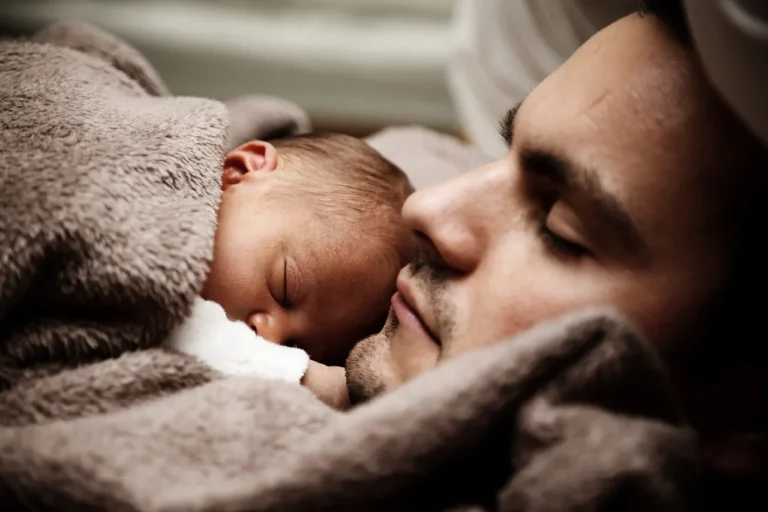Do Babies Dream? Exploring the Fascinating World of Baby Dreams
Have you ever wondered if babies dream? Those precious moments of sleep when their eyes flutter, their tiny hands move, and smiles or expressions of confusion appear on their faces can make us question what’s happening in their little minds. In this article, we will delve into the intriguing topic of baby dreams, exploring their nature, significance, and how they contribute to the overall development of your bundle of joy.
Table of Contents
Introduction
As parents, we marvel at every aspect of our baby’s growth and development. Sleep, an essential part of their routine, plays a crucial role in their well-being. While we often associate dreaming with adults, it’s natural to wonder if babies experience these nocturnal adventures as well. Let’s embark on this journey of understanding and unravel the mysteries of baby dreams.
What Are Dreams?
Before we dive into the world of baby dreams, let’s take a moment to understand what dreams are. Dreams are mental experiences that occur during sleep, characterized by a series of thoughts, images, emotions, and sensations. They often create vivid narratives that can range from delightful to bizarre, and even frightening.
The Development of Dreams in Babies
Research suggests that babies do indeed dream, even though their dreams may differ from those of adults. The development of dreaming in babies is closely tied to the maturation of their brain and central nervous system. Initially, their dreams may be simple and fragmented, gradually becoming more complex as they grow older.
Signs that Babies Might Be Dreaming
As parents, we may observe signs that indicate our babies are dreaming. During sleep, you may notice rapid eye movements (REM) behind their closed eyelids, which is a typical characteristic of dreaming. Additionally, you might observe facial expressions, such as smiles, frowns, or occasional twitching, which could be reflective of their dream content.

Understanding the Content of Baby Dreams
Although we can’t directly ask babies about their dreams, researchers suggest that their dreams might be influenced by their limited experiences and sensory perceptions. For newborns, dreams may revolve around basic sensations, such as warmth, hunger, or comfort. As they grow, their dreams may incorporate more complex elements, such as faces, voices, and interactions with their environment.
The Role of REM Sleep in Baby Dreams
Rapid Eye Movement (REM) sleep plays a crucial role in the dreaming process for both babies and adults. During REM sleep, the brain becomes highly active, and the eyes move rapidly beneath closed eyelids. This stage of sleep is associated with intense dream experiences. In babies, REM sleep occupies a larger proportion of their sleep cycle compared to adults, indicating the significance of dreams in their early development.
Why Do Babies Dream?
The exact purpose of dreaming in babies is not yet fully understood. However, researchers propose several theories. Dreams may assist in cognitive development, memory consolidation, and emotional regulation. They may also serve as a means for babies to process their daily experiences, learn from their environment, and adapt to the world around them.
Benefits of Dreaming for Babies
Dreaming offers numerous benefits for babies’ overall development. It allows them to practice and integrate new skills, process emotions, and stimulate their imagination. Dreams provide an avenue for creativity and problem-solving, fostering cognitive growth and enhancing brain connections.
Do Babies Experience Nightmares?
Just as adults experience nightmares, babies can also have unpleasant dream experiences. Nightmares can be distressing for both babies and parents, but they are a normal part of dreaming. As babies cannot communicate their fears verbally, it’s important for parents to provide comfort and reassurance, helping them settle back into a peaceful sleep.

Promoting Healthy Sleep and Dreaming in Babies
To ensure healthy sleep and optimal dreaming for babies, it’s crucial to establish consistent sleep routines. Creating a calm and soothing sleep environment, implementing regular sleep-wake cycles, and providing comfort when needed can contribute to their overall sleep quality and dream experiences.
How to Interpret Baby Dreams
Interpreting baby dreams can be a fascinating endeavor. While it’s impossible to know exactly what a baby dreams about, observing their behavior during wakefulness can provide insights into their dream content. Pay attention to their responses to different stimuli and activities, as it may give you a glimpse into their dream world.
Common Themes in Baby Dreams
While we cannot pinpoint the specific content of baby dreams, some common themes tend to emerge. Dreams involving familiar faces, such as parents or caregivers, interactions with toys or pets, and experiences related to their immediate environment are likely to occur. These themes reflect their growing awareness and developing connections with the world around them.
The Fascination with Baby Dreams
The topic of baby dreams has captivated the imagination of parents, researchers, and storytellers alike. It fuels our curiosity about the inner world of babies, their unique experiences, and the development of their rapidly evolving minds. Baby dreams serve as a reminder of the endless wonders and mysteries that accompany the journey of parenthood.
Myth vs. Reality: Debunking Baby Dreaming Misconceptions
While baby dreams spark intrigue and wonder, it’s important to debunk some misconceptions. Contrary to popular belief, babies do not dream only in black and white. Their dreams are not limited to reruns of their waking experiences, and they do not remember dreams in the same way as adults. Understanding these realities helps us approach the topic of baby dreams with a more informed perspective.
Conclusion
In conclusion, babies do indeed dream, embarking on their own nocturnal adventures in the realm of slumber. While we may never fully unravel the complexities of their dreamscapes, we can appreciate the role dreams play in their cognitive, emotional, and sensory development. By nurturing their sleep and creating a supportive environment, we contribute to the growth of their dreaming minds, providing a foundation for their future exploration of the world.
Frequently Asked Questions
Yes, it is believed that all babies experience dreams during their sleep, although the content and nature of their dreams may vary.
Babies can have unpleasant dream experiences, often referred to as nightmares. These dreams can be distressing, but they are a normal part of their dreaming process.
Establishing a consistent sleep routine, creating a calm sleep environment, and providing comfort and reassurance are key factors in promoting healthy sleep for babies.
While it’s impossible to know the exact content of your baby’s dreams, observing their behavior during wakefulness can provide insights into their dream world.
It’s normal for babies to make movements and noises during sleep, including twitches. These movements are often associated with their dream experiences and are considered a normal part of their sleep cycle.
FOR MORE VALUABLE TIPS BUY OUR PARENTING COURSES AT https://www.kidzoot.com/courses/
CONSULT YOUR PERSONAL PARENTING SOLUTIONS VIA APPOINTINTMENT AT https://www.kidzoot.com/appointment-booking/
Follow Us on Twitter www.twitter.com/kidzootworld

